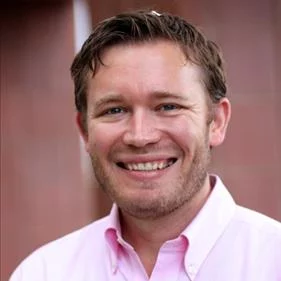An Opposing View on Campus Life for Jewish Students

This piece originally ran December 25 in Algemeiner.
The Algemeiner recently published another article in what seems to be a new favorite pastime of such publications: a list of the “worst campuses for Jewish students.” As Hillel International’s President Eric Fingerhut recently wrote, there is in fact a disturbing rise in antisemitic incidents on campus, and we all know about the concerted efforts of anti-Israel organizations to target campuses.
But these “worst campuses” lists are a huge disservice to the Jewish community, and frankly are quite misleading. By focusing only on isolated incidents of antisemitism and anti-Israel activity, and minimizing all the positive aspects of Jewish life on campus, these efforts distort the real picture of campus life for Jewish students. Indeed, some of the universities on the “worst” list are among the best schools in North America, and have thriving Jewish communities with innovative programs, strong Hillels and boundless opportunities for students to engage in Jewish life and support Israel.
The Algemeiner list was drawn up largely based on antisemitic and anti-Israel activity and incidents, but that’s not only what makes for Jewish life on any campus. Jewish life is what happens when hundreds of students gather for Shabbat dinner, take courses in Judaic Studies, bake challah to deliver to homebound Jews, study remotely with Jews in prison, engage in interfaith dialogue with other faith-based organizations on campus, travel to international communities to build or repair homes during Alternative Spring Break service trips or meet together to discuss and celebrate Israel.
In fact, many of these same campuses have strong pro-Israel programming because Hillel, together with the Jewish Agency for Israel, has placed Israel Fellows — dynamic young Israelis who have finished military service and are trained to teach about Israel — on more than 100 campuses. These fellows are often the first Israelis that many students have met, and they educate Jewish and non-Jewish students alike by sharing their personal stories and authentic life experiences.
Hillel’s Israel Action Program (IAP) supports students and local Hillel professionals so that they can create high-quality and high-impact Israel experiences. This work happens on campuses of all types, whether there are large numbers of Jewish students or not. Last year, IAP’s diverse speaker’s bureau created 126 events on 87 campuses. We booked Israeli artists, athletes, women’s rights activists, authors, diplomats, musicians, comedians, chefs and former members of the Knesset to talk to students who crave a deeper connection with Israel, and to introduce Israeli society to the entire campus.
Students have responded. The number of positive Israel programs doubled nationwide between the 2014-2015 and 2015-2016 academic years, and student engagement rose by a staggering 500 percent. Participation in Birthright Israel, study abroad programs in Israel and initiatives offered by local Israeli educators on campus have also all risen markedly.
We cannot judge how good or bad a campus is for Jews based on whether antisemitic and anti-Israel attacks or incidents occur.
We know these issues are real, and we have a responsibility to deal directly with people who interrupt speakers, spray swastikas, post eviction notices on the dorm rooms of Jews, intimidate Jewish students or exclude them from progressive coalitions on the basis of their pro-Israel identities.
At Hillel, we’ve always responded to these incidents with courage, creativity and energy. We work with a broad coalition of campus groups to call out hatred, confront bigotry and protect the campus from those who would try to turn student against student.
We are proud that we develop deep relationships with campus administrators and work with local law enforcement to ensure anti-Jewish bigotry is taken seriously. And more importantly, we work with the leadership of hundreds of campuses to put in place policies that prevent such incidents from taking place.
Hillel builds strong Jewish communities on campuses because our core mission is building and sustaining Jewish identity. What we have discovered along the way is that our strong communities are what allow us to confidently and effectively protect our campuses from bigotry and hatred.
It’s true there are campuses where anti-Israel activists are particularly vocal. But on these same campuses, if you care to visit them, you will see that our Hillels are even more energized. The campus climate for Jewish students isn’t set by troublemakers. It’s determined by the consistent efforts of people who love learning and Jewish life, and who refuse to be intimidated. These are the kinds of Jewish student leaders we should all encourage.
On campus after campus, students are more confident than ever in their Jewish identities. They want to learn more about the Jewish State, wrestle with the challenges Israel faces, and celebrate Israel’s remarkable achievements. Most of all, they want to protect their communities from hatred and bigotry aimed at Jews. And that’s a campus environment I would be proud to offer to any prospective Jewish student.
Hal Ossman is chief campus officer for Hillel International.